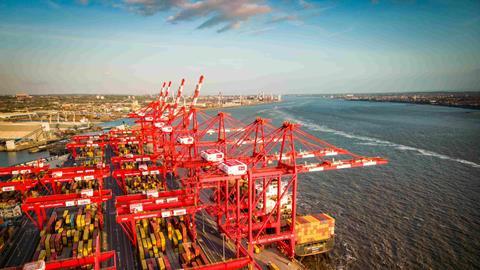The UK needs a ‘two-port’ strategy, in which shipping lines deliver containerised cargo through either the north or south of the country in order to drive down costs and shorten lead times, according to Peel Ports.
Building on its recent research that showed 76% of UK retail leaders think imported goods travelling through ports closer to them will cut greenhouse emissions and create a more sustainable supply chain, the port operator said businesses are backing its call for a new approach.
It said 90% of deep-sea containerised cargo entered the country via southern ports, despite 60% of goods being destined for the north.
Peel Ports Group said this created a host of challenges, including insufficient rail and HGV driver capacity, congested roads, cargo delays, ineffective landside logistics and pollution caused by long road journeys.
Speaking during a recent webinar jointly hosted by the port operator and the British Retail Consortium, Stephen Carr, group commercial director at Peel Ports, said: “A North South, two-port UK strategy could address many of the country’s logistics challenges, transforming and modernising supply chains for retailers and other cargo owners.
“There’s a high level of support from the retail sector, driven by a need to better optimise the flow of seaborne cargo to enable much greater landside efficiencies.
“If we’re to see a supply chain which works with retailers, not against them, then it makes little sense to rely on the current status-quo - we need to utilise the ports of entry in the north, and across the whole country.”
John Cavanagh, freight manager at Home Bargains owner TJ Morris, said: “The benefits that a two-port strategy brings are lower transport costs, a reduction in carbon emissions, as well as providing us with quick and easy access to containers, which allows us to have more efficient processes.
“The current system is still in place for historical reasons, but our business model is all about keeping it simple, and a two-port strategy means we can react to demand, which gives us a real advantage.”
Trinity Logistics said it wanted to see senior leadership in the industry to commit to the strategy: “If we get that commitment, I’m certain it will take off and be successful, as we’ve proven in the past that it can be,” said Amanda Unsworth, Trinity’s MD.
“We need to work together to get that message across.”














